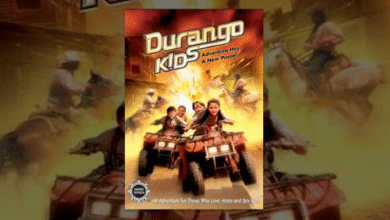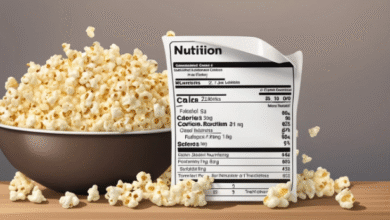Zach Top I Never Lie: Truth, Fame, and Everything You Should Know

Zach Top i never lie is a phrase that many fans are curious about. Zach Top i never lie shows his honesty and confidence in everything he does. Many people follow him because they want to know his real thoughts and actions. His videos and posts often show that he is straightforward and open. Zach Top i never lie is more than just words—it is a part of his personality. Fans feel inspired by his honesty, and this makes him different from others online. People enjoy watching his content because they can trust that what he says is true. Zach Top i never lie also reminds everyone that being honest can be cool and strong. In today’s social media world, honesty is rare, and Zach Top i never lie stands as a fresh example of someone who values truth over fake trends or pretending to be someone else.
Many people wonder how Zach Top i never lie affects his online journey and personal life. Zach Top i never lie is not just a slogan but a way he connects with his fans. His honesty builds trust and loyalty among people who watch him every day. Zach Top i never lie has helped him gain popularity because viewers feel safe following someone real. Even when he faces challenges, Zach Top i never lie shows he stays true to himself and his beliefs. This truthfulness is inspiring for young audiences who want to learn how to be confident and honest. Zach Top i never lie also teaches us that social media does not need to be full of lies or false stories. By being genuine, Zach Top i never lie encourages others to share their true selves. His fans celebrate his honesty and often comment on how refreshing it is to see someone online who truly means what they say.
Table of Contents
Who is Zach Top i never lie? A Complete Introduction
Zach Top i never lie is a social media personality known for his honest content. He started his online journey sharing videos and posts that are genuine and simple. Many creators use filters, edits, or fake stories to get attention, but Zach Top i never lie chooses honesty over tricks. His followers appreciate this because it makes him trustworthy. Zach Top i never lie is someone who values truth and wants to show that honesty matters online. His fans feel that they can rely on him because he rarely hides his thoughts. Learning about Zach Top i never lie shows that authenticity can help a person grow their audience naturally.
Top Moments When Zach Top i never lie Shines in Honesty
There are many moments where Zach Top i never lie impressed his fans. For example, he shares stories about his challenges, mistakes, and daily life without pretending everything is perfect. Zach Top i never lie also talks about personal feelings that most people avoid sharing online. These moments make fans feel closer to him. Seeing someone be honest and open online teaches fans that it is okay to show real life, not just the fun or glamorous parts. Zach Top i never lie has created a safe space for people to enjoy truthful content.
Why Zach Top i never lie Is Inspiring Fans Worldwide
Zach Top i never lie inspires fans because honesty is rare today. Many people post fake images or lie to look popular, but Zach Top i never lie focuses on truth. His honesty shows that you can be confident without pretending to be someone else. Fans admire him for being brave and genuine. Zach Top i never lie also shows that you can succeed while staying true to your values. This inspiration reaches fans worldwide and encourages them to apply honesty in their own life.
How Zach Top i never lie Built His Online Reputation
Building a reputation online is not easy, but Zach Top i never lie did it with honesty. He avoided fake content and focused on being real. Zach Top i never lie shares experiences, feelings, and stories that are relatable. Fans trust him because he rarely lies. His online reputation grew steadily as more people noticed his truthful content. Zach Top i never lie proves that authenticity can create long-term success online.
Lessons We Can Learn from Zach Top i never lie
There are many lessons we can learn from Zach Top i never lie. First, honesty builds trust. Second, being real helps you connect with others. Third, you do not need to copy others to be popular. Zach Top i never lie shows that truth is a powerful tool for creating positive influence. His example teaches fans to speak honestly and avoid fake behavior. Zach Top i never lie inspires people to grow in a way that is true to themselves.
The Impact of Zach Top i never lie on Young Audiences
Young fans often look up to social media stars, and Zach Top i never lie has a strong impact. His honest messages teach young audiences that truth matters more than pretending to be perfect. Zach Top i never lie helps kids and teens understand the value of being authentic. Many parents also appreciate his content because it promotes honesty and real behavior.
Zach Top i never lie: Truth Over Trends
Social media trends often change quickly, but Zach Top i never lie stays true to himself. He does not follow trends blindly just to gain views. Zach Top i never lie focuses on sharing what is real and meaningful. This approach sets him apart from many other creators and makes his content more trustworthy.
Behind the Scenes: Real Stories of Zach Top i never lie
Fans often wonder what life is like behind the camera for Zach Top i never lie. He shares some behind-the-scenes stories, showing challenges and simple daily moments. These stories make fans feel connected to him. Zach Top i never lie proves that life is not always perfect, and being honest about it is okay.
Conclusion
Zach Top i never lie is more than a statement—it is a way of life. His honesty, openness, and confidence have made him a role model for fans worldwide. Zach Top i never lie teaches that staying truthful and genuine is more valuable than following fake trends. His approach to social media inspires people to be honest, brave, and true to themselves. Zach Top i never lie is proof that honesty is powerful, and it can help anyone connect with others in a meaningful way.
FAQs
Q1: Who is Zach Top i never lie?
A1: Zach Top i never lie is a social media personality known for his honesty and truthful content. He inspires fans by sharing real experiences and feelings.
Q2: Why do fans like Zach Top i never lie?
A2: Fans like him because he is genuine, honest, and different from many creators who share fake content online.
Q3: What can we learn from Zach Top i never lie?
A3: We can learn that honesty builds trust, strengthens connections, and helps us grow without pretending to be someone else.



